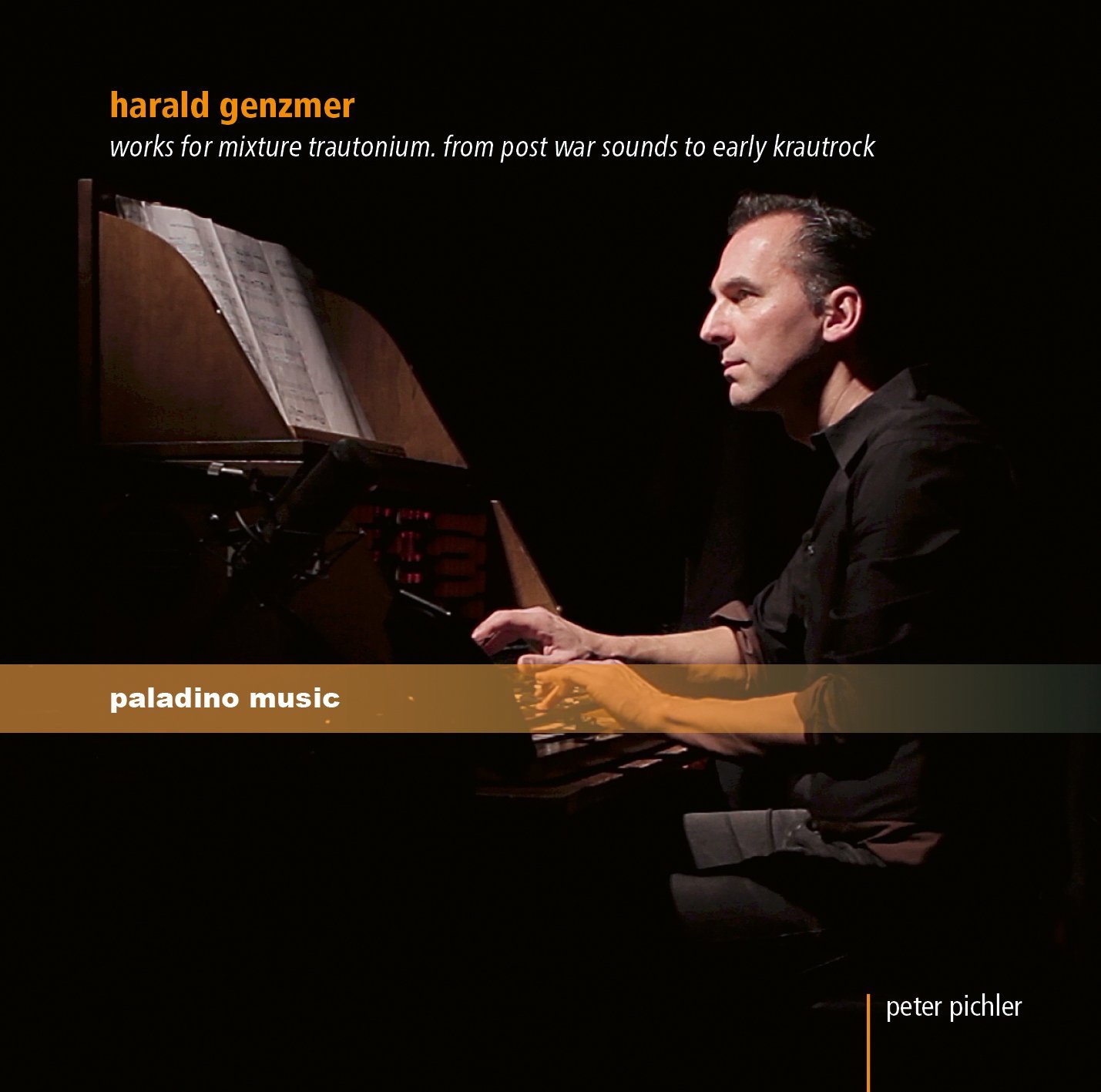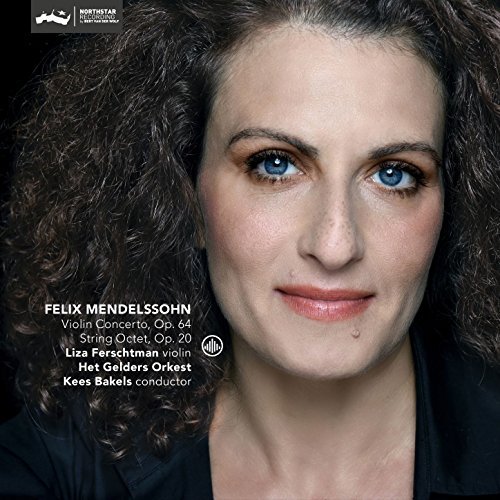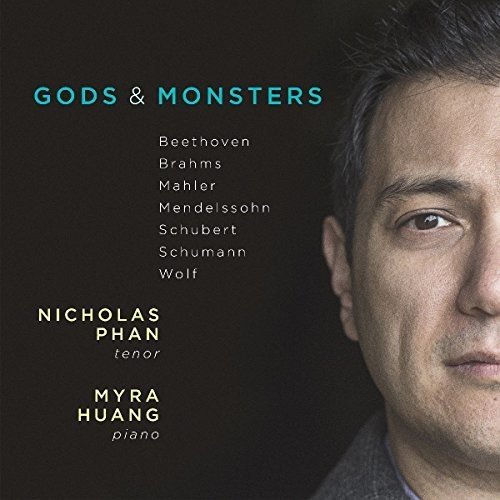Classical CDs Weekly: Harald Genzmer, Mendelssohn, Nicholas Phan | reviews, news & interviews
Classical CDs Weekly: Harald Genzmer, Mendelssohn, Nicholas Phan
Classical CDs Weekly: Harald Genzmer, Mendelssohn, Nicholas Phan
Early German electronica, teenage chamber music and stories told through song

 Harald Genzmer: Music for Trautonium Peter Pichler (mixture trautonium) (Paladino Music)
Harald Genzmer: Music for Trautonium Peter Pichler (mixture trautonium) (Paladino Music)
The trautonium is described here as “the instrument of a lone man”. In this case, one Oskar Sala, who spent his long musical life associated with this extraordinary, temperamental electronic beast. The size of a small garden shed, it was developed in the late 1920s by Friedrich Trautwein, with Sala key to the instrument’s future development. The technical details listed are mind-boggling and beyond my feeble comprehension: there's talk of Kipp generators, thyraton tubes and artistic formants. But, if you're fond of the Theremin’s seductive swoon, or the whoop of an Ondes Martenot, the trautonium will definitely be your bag. There’s one buried deep in the soundtrack to Hitchcock’s The Birds, and Sala used a trautonium to simulate bell sounds for postwar Bayreuth performances of Parsifal. Agnes Obel included one on her most recent album. That we can still hear it is largely down to the enthusiasm of Peter Pichler, who heard a trautonium on a film score in the 1990s, tracked down the elderly Sala and learned to play it, eventually commissioning a new instrument.
This disc consists entirely of music written for the instrument by Harald Genzmer, a Hindemith pupil who met Sala in the 1930s and survived, improbably, until 2007. His Concerto for mixture trautonium and orchestra is a real find, the neoclassical orchestral stylings set against deliciously weird trautonium sonorities. Two compact sonatas with piano accompaniment share a similar mood, the clean piano lines a brilliant foil to some of the most engaging electronic sounds you've never heard before. Low tones have a bassoon-like fruitiness, and the squeakier higher notes never grate. This should really come with a matching DVD; you’re desperate to see how this instrument is played. Strangest is Genzler’s Suite des Danses pour Instruments Électroniques, enormously enjoyable and bursting at the seams with indescribably odd sounds. Sombre packaging might suggest that we’re in for a gruelling listening experience. Nothing could be further from the truth – this is a joyous disc and a perfect introduction to an electronic instrument with soul.
 Mendelssohn: Violin Concerto, Octet Liza Ferschtman (violin), Het Gelders Orkest/Kees Bakels (Challenge Classics)
Mendelssohn: Violin Concerto, Octet Liza Ferschtman (violin), Het Gelders Orkest/Kees Bakels (Challenge Classics)
Let’s start with the coupling: Mendelssohn’s Octet is a jaw-droppingly brilliant work, all the more so in coming from a precocious teenage composer. This live reading, the ensemble led by violinist Liza Ferschtman, is a striking one. Largely because these players make the Octet sound like teenage music. Full of abrupt mood swings, petulant outbursts and gushing displays of affection. All enormously involving, the opening phrase’s swell distinctly hormonal. You worry that these players peak a little too soon, but there’s method behind the madness, the build-up to the ecstatic recapitulation nicely judged. The Andante offers some respite before the unhinged exuberance of the last two movements, the cellos outstanding in the finale’s opening scramble. All enormous fun; a mood-enhancing drug with no side effects.
Mendelssohn's Violin Concerto is more familiar fare, but it's no less good for that. It's easy to overlook the concerto's novel features – the absence of an extended opening tutti, or the fully written-out cadenza. Ferschtman’s studio reading is persuasive, beginning in understated fashion but quickly growing in intensity. Kees Bakels is a sympathetic accompanist, alert to every subtle gear change. All concerned deliver a delectable, gossamer finale. Very good indeed, but the Octet is the main attraction.
 Gods & Monsters Nicholas Phan (tenor), Myra Huang (piano) (Avie)
Gods & Monsters Nicholas Phan (tenor), Myra Huang (piano) (Avie)
The inspiration for tenor Nicholas Phan’s latest anthology was the challenge of performing songs to primary age children, and wrestling with the problem of how to hold their attention – if you’re just five, “even a two-minute song can feel like an eternity.” Prompting a focus on the ability of songs to tell stories, this collection is organised into four sets of songs touching on Greek mythology, knights and kings, “scary creatures of the night” and fairy tales. It works well: as with Johannes Prahmsohler’s Barocco colouring book, I tested several of Phan’s songs on eight-year-olds who followed the translated texts, and they didn’t once run for the hills. There are so many jewels here. Like Schubert’s Der Sänger, the tale of an intinerant musician visiting a king, and two numbers from Mahler's Das Knaben Wunderhorn. Wo die Schönen Trompeten blasen is outstanding, made so by Phan’s impeccable diction and pianist Myra Huang’s deft characterisation.
Schubert’s Der Zwerg chills, and there’s an entertaining snippet of Mendelssohn in the form of his Hexenlied. The Fairy Tales sequence features three wonderfully offbeat numbers by Hugo Wolf, with Der Rattenfänger a standout. Closing proceedings on a calmer note is Brahms’s beautiful Sandmännchen, where Phan's sheer sensitivity is a delight. An absorbing recital disc, and an ideal introduction to the joys of lieder. Beautifully recorded, with full texts and translations provided.
Explore topics
Share this article
Add comment
The future of Arts Journalism
You can stop theartsdesk.com closing!
We urgently need financing to survive. Our fundraising drive has thus far raised £49,000 but we need to reach £100,000 or we will be forced to close. Please contribute here: https://gofund.me/c3f6033d
And if you can forward this information to anyone who might assist, we’d be grateful.

Subscribe to theartsdesk.com
Thank you for continuing to read our work on theartsdesk.com. For unlimited access to every article in its entirety, including our archive of more than 15,000 pieces, we're asking for £5 per month or £40 per year. We feel it's a very good deal, and hope you do too.
To take a subscription now simply click here.
And if you're looking for that extra gift for a friend or family member, why not treat them to a theartsdesk.com gift subscription?
more Classical music
 BBC Proms: Láng, Cser, Budapest Festival Orchestra, Ivan Fischer review - idiomatic inflections
Bartók’s heart of darkness follows Beethoven’s dancing light
BBC Proms: Láng, Cser, Budapest Festival Orchestra, Ivan Fischer review - idiomatic inflections
Bartók’s heart of darkness follows Beethoven’s dancing light
 Weilerstein, NYO2, Payare / Dueñas, Malofeev, Edinburgh International Festival 2025 review - youthful energy and emotional intensity
Big-boned Prokofiev and Shostakovich, cacophonous López, plus intense violin/piano duo
Weilerstein, NYO2, Payare / Dueñas, Malofeev, Edinburgh International Festival 2025 review - youthful energy and emotional intensity
Big-boned Prokofiev and Shostakovich, cacophonous López, plus intense violin/piano duo
 theartsdesk at the Three Choirs Festival - Passion in the Cathedral
Cantatas new and old, slate quarries to Calvary
theartsdesk at the Three Choirs Festival - Passion in the Cathedral
Cantatas new and old, slate quarries to Calvary
 BBC Proms: Estonian Philharmonic Chamber Choir, Kaljuste review - Arvo Pärt 90th birthday tribute
Stillness and contemplation characterise this well sung late-nighter
BBC Proms: Estonian Philharmonic Chamber Choir, Kaljuste review - Arvo Pärt 90th birthday tribute
Stillness and contemplation characterise this well sung late-nighter
 BBC Proms: Kholodenko, BBCNOW, Otaka review - exhilarating Lutosławski, underwhelming Rachmaninov
Polish composers to the fore in veteran conductor’s farewell
BBC Proms: Kholodenko, BBCNOW, Otaka review - exhilarating Lutosławski, underwhelming Rachmaninov
Polish composers to the fore in veteran conductor’s farewell
 theartsdesk at the Pärnu Music Festival 2025 - Arvo Pärt at 90 flanked by lightness and warmth
Paavo Järvi’s Estonian Festival Orchestra still casts its familiar spell
theartsdesk at the Pärnu Music Festival 2025 - Arvo Pärt at 90 flanked by lightness and warmth
Paavo Järvi’s Estonian Festival Orchestra still casts its familiar spell
 BBC Proms: Batsashvili, BBC Scottish Symphony Orchestra, Ryan Wigglesworth review - grief and glory
Subdued Mozart yields to blazing Bruckner
BBC Proms: Batsashvili, BBC Scottish Symphony Orchestra, Ryan Wigglesworth review - grief and glory
Subdued Mozart yields to blazing Bruckner
 Classical CDs: Hens, Hamburg and handmaids
An unsung French conductor boxed up, plus Argentinian string quartets and baroque keyboard music
Classical CDs: Hens, Hamburg and handmaids
An unsung French conductor boxed up, plus Argentinian string quartets and baroque keyboard music
 BBC Proms: McCarthy, Bournemouth SO, Wigglesworth review - spring-heeled variety
A Ravel concerto and a Walton symphony with depth but huge entertainment value
BBC Proms: McCarthy, Bournemouth SO, Wigglesworth review - spring-heeled variety
A Ravel concerto and a Walton symphony with depth but huge entertainment value
 BBC Proms: First Night, Batiashvili, BBCSO, Oramo review - glorious Vaughan Williams
Spirited festival opener is crowned with little-heard choral epic
BBC Proms: First Night, Batiashvili, BBCSO, Oramo review - glorious Vaughan Williams
Spirited festival opener is crowned with little-heard choral epic
 Interview: Quinteto Astor Piazzolla on playing in London and why Mick Jagger's a fan
Music Director Julián Vat and pianist Matias Feigin compare notes on Piazzolla
Interview: Quinteto Astor Piazzolla on playing in London and why Mick Jagger's a fan
Music Director Julián Vat and pianist Matias Feigin compare notes on Piazzolla

Comments
Thank you very much Graham!
An excellent trio of reviews.